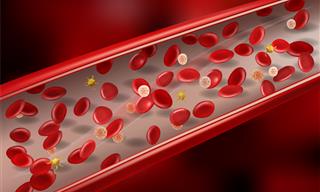Aluminum
Aluminum can be found just about anywhere - from our kitchen utensils, to beverage cans, to antiperspirants and even food. Because aluminum is found in many items around the home, scientists are exploring whether over-exposure to aluminum may be posing a threat to human health.
In fact, it has been found that high concentrations of aluminum have been detected in the brain tissue of patients with Alzheimer's disease. After examining a community of old people with Alzheimer's, it's been concluded that this modern disease has developed from altered living conditions associated with society's industrialization.
Antibacterials
As soaps, tissues, sponges, cutting boards, counter tops and toilet seats are laced with germs, many of us often reach for antibacterial sprays and lotions to keep such items clean and our family, healthy. But are they necessary? Research has shown that antibacterial soaps and cleaners offer no health benefits. Rather, they have been found to create antibiotic-resistant bacteria.
Evidence also shows that children with prolonged exposure to triclosan have a higher chance of developing allergies, including peanut allergies and hay fever when exposed to such items. Scientists believe that this could be a result of reduced exposure to bacteria, which could be necessary for proper immune system functioning and development.
Artificial Sweeteners
Though the FDA maintains that these products are safe, some scientists believe that they could pose health risks equal to or worse than real sugar. In fact, in 1977, the U.S. Food and Drug Administration initially tried to ban sweeteners as animal studies showed that they caused cancer of the bladder, uterus, ovaries, skin and other organs. However, the food industry intervened and urged Congress to keep it on the market, with a warning label. However, it is worth noting that no long terms studies have shown harmful effects of sweeteners in humans.
Canned Food
Many food and beverage cans are lined with a thin coating that keeps the metal from eroding into the food. This lining however, also contains bisphenol A (BPA) which has been linked to numerous diseases including obesity, diabetes and breast cancer.
Microwave
Microwave ovens are known to leak radiation, albeit at very low levels - so low that both the FDA and scientists believe them to be harmless. Nevertheless, microwave radiation has still been a cause of concern for some, with a few believing that it can cause cancer and infertility. While the evidence may be mixed, most published research concludes that low-level microwave exposure doesn't pose a significant risk to human health. Furthermore, it seems unlikely that the microwaves inside the microwave somehow escape and encounter your body.
Plastic Containers
While plastic bottles and tubs may be convenient, they contain potentially carcinogenic chemicals and endocrine disrupters that may seep into your food and drink, particularly when heated. Heating food in plastic increases the amount that's transferred to food. It increases especially when the plastic touches fatty, salty or acidic foods. But how much actually gets into our bodies is not yet known.
Nonstick Cookware
Skillets can reach their desired temperature in just a couple of minutes. But heating to high temperatures can cause them to emit a carcinogen. So, be sure to pay attention while cooking and remember to lower the temperatures of your nonstick pan.
Unfiltered Water
According to the Natural Resources Defense Council, tap water is just as safe as bottled water. But, prior to drinking the water that comes from your tap, find out what's coming out of your faucet.
Shopping Bags
Be it paper or plastic, whenever you go shopping, opt to take a reusable bag with you. Massive amounts of energy and waste go into the production of both paper and plastic bags.
Leaded Crystal
Lead is not only found in house paint (a well known fact) it is possible that we may be ingesting lead from antique goblets and dishware. This discovery was made when in one study, the amount of lead that was leaking into food and beverages stored in crystal containers was made. The study measured port wine stored in lead crystal decanters. After two days, lead levels stood at 89 micrograms per liter and after four months, lead levels exceeded between 2,000 and 5,000.
 Go to BabaMail
Go to BabaMail





























